Transcript:
Paul Tyler:
Hi, this is Paul Tyler and welcome to another episode of That Annuity Show. We have our regular host, Ramsey, how are you?
Ramsey D Smith:
Fantastic.
Paul Tyler:
Bruno, welcome from Canada.
Bruno Caron:
Fantastic as well here.
Paul Tyler:
Tisa, glad to have you on.
Tisa Rabun-Marshall:
Thanks, good morning everyone.
Paul Tyler:
Yeah, well today we’re actually going to spend some time talking about a conference two weeks ago that the Alliance for Lifetime Income organized in Washington, DC. It looked like a great turnout, great speakers. Ramsey, you were there, and we have one other panelist, also a regular guest on our show, Mr. David Mocchia. David, welcome.
David Macchia:
Good morning. Thank you.
Paul Tyler:
And for those who don’t know, you are the founder and CEO of Wealth2K in Boston. And thanks. We just thought it would be really interesting just to get both of your perspectives on what was said, what wasn’t said, what should be talked about a little bit more in the industry going forward. Ramsey, I’ll just turn it over to you to start.
Ramsey D Smith:
Sure, so just to. to give a bit of background on the event. So it was held in Washington, D.C. And I thought that the way it was organized was really unique and interesting. So it was sponsored by the Alliance for Lifetime Income. It was their annual summit. And it was an interesting mix of people and leaders representing the members of the Alliance for Lifetime Income. So they have 20 odd members that are in the insurance industry support the cause of changing the conversation around protected income. And this was a gathering of those leaders. It was a gathering of what I’ll call the intelligentsia
Ramsey D Smith:
space, all right. I won’t include myself in that, but I will just say that I was happy to be in the room. And, you know, it was a it was a who’s who of was a who’s who of a folks we’ve been lucky enough to have on our show over the course of the last three or four years. A lot of amazing voices joined by. really what I’ll call stakeholders in the space. So on the first day there was a session around table and the whole event was really built around this UN style table which I think was great for fostering conversation. The first conversation really revolved around the role of financial advisors, RAs and other financial advisors. And then the next day it was just a very interesting mix of again, of leaders, of consumers. it was a consumer panel, that was really quite enlightening. And then, again, different people, sort of bringing different perspectives on what the challenges are and opportunities in the space. So just before we go on, I wanna thank Gene Statler, Cyrus Bamgee, and the entire Alliance team for having us as part of the program. It was a fantastic program. David, I don’t know what you wanna add to that, but I wanted to sort of set the table for the audience about what we talked about.
David Macchia:
You said it well, Ramsey, and I’ll also say that you’re clearly and appropriately part of the intelligentsia of retirement
David Macchia:
income ecosystem. The Alliance did a wonderful job bringing all of these people together. The conversation, the panels were great, terrific information. An overarching theme that came through over and over again, though, was that we still have a long way to go. We’re nowhere near the penetration with the protected income, guaranteed income that we And so there’s more effort, more communications, more tools, more thought that needs to be committed to this. But a tremendous beginning. And the Alliance, to its credit, has made some great progress and has highlighted the issue, I think, in a very, very effective way.
Paul Tyler:
Well, I’m curious on roadblocks. That’s a loaded term. I don’t know, Ramsey, what were they? And I mean, if we started to, you know, maybe we could jump into a couple of them, talk about the problems, how they were identified and what kind of solutions or ideas came up.
Ramsey D Smith:
So we can start with the issue of advisors, financial advisors, RIAs. There was a whole session at the beginning where we focused on that, and it was really, again, a nice mix of people. There were advisors that were from wirehouses, there were advisors that were from independent RIAs. David Lau, who’s been… on our show and has been an innovator in bringing annuities to that crowd, was there and was vocal in a great way. And it was just interesting to hear what various parties had to say about how they felt about the opportunity to use annuities. And so it’s interesting is that even to the extent that many of them were pro, so one of the challenges we have in this space is that there are plenty of RAs that aren’t pro the use of annuities. or protected income solutions. And this was actually, I would say, relatively speaking, a friendly audience. But a lot of what they talked about was the challenges with doing something scalably in the space. And so to the extent that they actually used annuities, protected income solutions for their clients, it was not as frequent as it might as otherwise have been if the process of managing a business around an annuity book if you book a business you will were were simpler and more scalable David any thoughts on that I’m happy to add
David Macchia:
Yeah,
Ramsey D Smith:
more
David Macchia:
no,
Ramsey D Smith:
there
David Macchia:
I think that’s absolutely right. And you are correct, Ramsey. There were friendly people from firms like Morgan Stanley and others that believe in annuities and want to see the adoption of annuities greater in their firms than they currently are. But there’s roadblocks everywhere. And there’s certainly roadblocks in terms of what I’ve written a lot about, which is just sort of an endemic hostility among many in the RA community to annuities. some out and keep reminding them that their traditional disparagement or negative thoughts about annuities have largely been eradicated and designed away. You mentioned David Lau, and he’s been an innovator correctly. There are kind of the annuity that is ideally suited for adoption to the RIA model right now. It should be used more. It should have greater uptake. But we still have work to do to persuade these people that they need to move past their own prejudices against, you know, guaranteed income.
Ramsey D Smith:
So I want to return to this notion of scalability because there were definitely some comments that I think were quite fair. And it was really around a few things. One, it was around, because of the great deal of differentiation that’s been introduced into our business between one company’s products and another, and even between the companies to a certain extent. There’s a lot of due diligence that kind of goes into the initial process of starting to provide those products in one’s business. And then once you’ve done that, there’s, there’s an ongoing, there’s ongoing service responsibility. that as they described was challenging. So they told stories of lots of time on the phone. So there was some question that might have come up about a policy and there wasn’t an easy place to get an answer for it online or elsewhere. So they ultimately had to make outbound calls to the carriers to find out and that the friction around having to do that and the hours spent. waiting for answers, you know, ultimately made it difficult to think about contemplating building a, building a broader and more scalable business. So in my view, it highlighted like one of the key things that we need to continue to work on in this industry is to focus more on commoditization and standardization and less on less on differentiation. I know that that’s some people will find that to be heretical. But
David Macchia:
Yeah.
Ramsey D Smith:
certainly in my view, because I think that the biggest constraint in our industry, I don’t think is creativity. I think the biggest constraint in our industry is operational ease, and also it’s capital. I think that if everybody out there that could use an annuity bought an annuity tomorrow, the industry isn’t big enough yet to handle it. So that’s our constraint. We provide a really, really super valuable commodity. And I think that would be the place to invest. So that came through for me in some of the comments, again, from friendly RIAs in this space, who were only selling a few policies a year.
David Macchia:
I think this overarching theme of the need for simplification, which goes along with what you said, Ramsey, is really, really important. It’s hard with the current distribution model to move past the tendency to overcomplicate and make products more feature-rich all the time as a way to be competitively differentiated from your pure insurance company. Until that is solved, then it’s going to be difficult to move past what has been… a decades long approach, right, in terms of trying to be more competitive than the next company.
Paul Tyler:
Well, let’s just push a little bit on that simplification point, right? And I would say, why, right? Are we simplifying to make it easier to do plans? Going back to your scalability point, is it simpler to create client plans? Is it cheaper to administer? Is it cheaper to provide? Is it easier to find clients? You know and Ramsey you make the other point is it easier for the industry to actually you know grow from a capital and risk management standpoint? Yeah, did you dive deeper into you know any one of those particular areas?
Ramsey D Smith:
David, you want to go or?
David Macchia:
Well, I’m not certain, Paul, that the conference surfaced up, you know, solid answers to these big problems. It was more an analysis and identification of what the challenges are. And I think we have yet to figure out how to get around all of them. But we have to. You know, I think a universal, a universal desire among everyone who attended would be to see annuities become. standardized mainline products with genuine consumer demand. And
Ramsey D Smith:
So, sorry, go ahead.
David Macchia:
in that context, I think it’s very important that the RIA community embrace annuities. I think that’s a key to getting to where we have to go. But there’s a lot of work that has to be done to, as Ramsey indicated, to make it scalable in that channel.
Ramsey D Smith:
So I’m gonna take the other side of my own argument.
David Macchia:
Hehehe
Ramsey D Smith:
and ask the question, so why is it that we do focus so much, there is so much focus on differentiation in this industry. And I think at a certain level, it’s what customers are looking for. I mean, customers wanna feel like they’re buying something special. It’s not unique to the insurance industry. You see it in the mutual fund industry. Like, you could see a world where everybody just bought index funds, but no, people want branded funds, they want star managers, There’s a marketing challenge, Paul, I think that’s what you’re kind of getting at. There is a legitimate marketing challenge to the extent that you’re selling something that you sort of say admittedly is the simplest possible solution. So I think that’s the challenge. It’s not just what the industry wants to sell. I think it’s that that’s what the audience… whether intentionally or not, tends to ask for, I mean for years, whenever I spent 30 years on Wall Street and people would ask me for stock tips and the like, and I would always point them to a very well-known index fund manager. And if they followed my advice, they would do that, and they would come back and they’d say to me, well okay, now what do I do? And the answer to that was, is go get a beer. But in fact, they… you know, to a man or woman, they all wanted to find something else. They all felt like they needed to do something else. So people are willing to actually pay like they feel like they’ve done something different. So I think that’s a behavioral tendency that is quite real.
Bruno Caron:
So you mentioned the conference was separated in multiple topics. You mentioned you had a consumer panel. David, did you identify some of those consumers as being constraint investors? And were some of them, could you see the path towards the the continuing investment story to them and how to bring the conversation to that particular context.
David Macchia:
It’s a good question. I think that panel revealed a few things For me firstly, I’d say all of them were constrained investors But was most jarring to me was their difficulty in connecting with financial advisors. I mean You know Jean Statler at the meeting said she’s the chairman of the Alliance So we’re gonna make certain that there are people here in the audience who are advisors who work with you, you know But they told their stories, their war stories of how difficult it was to connect with financial advisors. One client found it difficult not so much to connect with advisors, but to find the right advisor to connect with, someone that she could harmonize with appropriately, she and her husband. So I thought that was a little bit surprising because working with financial advisors, as I do on a daily basis, I’m aware of most of them saying that their biggest challenge is finding a client. So here were clients who couldn’t find an advisor. That was just incredible to me, but certainly was a true fact. I don’t know, Ramsey, did you pick up anything else?
Ramsey D Smith:
Yeah, well there were lots of interesting things. It was a very good cross section of folks. And importantly, I don’t think anybody, I don’t think anybody would have been considered high net worth. I think they were anything from sort of, call it middle class, somewhere in sort of the low to mid part of mass affluent, David if that makes sense,
David Macchia:
Yeah, I think that’s
Ramsey D Smith:
in
David Macchia:
fair.
Ramsey D Smith:
that range.
David Macchia:
Absolutely.
Ramsey D Smith:
And I thought that was important because, right, that’s an important audience, right? Like that’s most people, that’s probably most Americans. And I think that the financial advisory system as it’s set up, it’s very human capital driven, and there’s lots of good reasons for that. And it’s, in some ways it’s expensive, and in some ways it should be, because human capital should be expensive, right? because it’s very valuable and et cetera. But unfortunately I think that’s a construct that lends itself towards focusing on wealthier clients. So one of the challenges here that was very clear is that most of these folks might have fallen under the radar, not all of them, but a few of them might have otherwise fallen under the radar for a lot of financial advisors. Now one of the amazing things, and big credit to again, in the audience is there were a number of advisors who put their hand up and said I’d be happy to help one or more of the folks on the panel. I thought that was great because the quality and the skill sets of the advisors that were there were really, really top, top, top flight. One of the… A couple, there were really, of the four or five people that were up on the panel, there were two that were, in my mind, most striking. So one was a couple. The wife worked in the federal government. Husband was a police officer, like a senior police officer, and both of them had pensions. And although they were not without concern about what. lay ahead for retirement, I think that you could see somewhat less tension about it than maybe with some of the other folks on the panel who didn’t really have the baseline guaranteed income. And that was quite notable. I think they were quite lucky to be in that
David Macchia:
You know,
Ramsey D Smith:
position.
David Macchia:
that’s a really good point, Ramsey, because that highlights the advantage of a floor, right, and how
Ramsey D Smith:
Yeah.
David Macchia:
important that is. And it was very clear you’re right, that the other people were very nervous about the future, not certain how they were going to be able to maintain their lifestyle at all. And without that floor income, that certain income, you know, they’re right to feel that anxiety for sure.
Tisa Rabun-Marshall:
Ramsey, did you discuss it all on that panel or at the conference about how and where to go to find those new types of clients? I heard you say, David, that there’s this group of consumers that say they’re looking for an advisor and they can’t find it. And there’s advisors that are looking for new clients and can’t find them. So clearly whatever, not necessarily clearly, but I’m gonna assume that whatever referral source, which is typically word of mouth that they’re using isn’t lending to… leading to the next client. So did they talk at all about strategies of like. technology, places, forums, marketing, ways that they should be looking differently for new clients, because it seems like that’s,
David Macchia:
Yeah,
Tisa Rabun-Marshall:
I guess
David Macchia:
I mean,
Tisa Rabun-Marshall:
where the disconnect is.
David Macchia:
I don’t think there was much discussion among advisors about how to market, but it was clearly a message that hit home to me was that advisors need to do more to market.
Tisa Rabun-Marshall:
Mm-hmm.
David Macchia:
They need to make themselves visible and available to people more than they’re doing so right now.
Tisa Rabun-Marshall:
Right. And I reach out of their natural market. I mean, for asking for the same client base
David Macchia:
That’s right.
Tisa Rabun-Marshall:
for the next referral and it’s dried up.
David Macchia:
That’s right. That’s
Tisa Rabun-Marshall:
Yeah.
David Macchia:
right. They’re going to be more proactive, you know, spend some money and market themselves as aggressively as they possibly can because I’m certain they will find customers if they do.
Ramsey D Smith:
I think there’s a few issues here and I’ll sort of lay them out as technology and trust. So trust is always an issue and actually it should be, right? It’s an emotionally charged issue to make a decision around everything you work for your whole life. So there’s the issue of people finding advisors that they feel that they can trust. And then there’s the question of how you actually. deliver sort of that matchmaking electronically, how you deliver the service electronically. And the reason I say electronically is because this is, it’s sort of in this sort of economic stratum, you’re gonna need to have, you’re gonna need to actually employ technology to achieve the kind of scale that’s. that’s needed, he can’t, I don’t think you can have individual advisors, I don’t know if there’s enough, individual
David Macchia:
Yeah,
Ramsey D Smith:
advisors,
David Macchia:
that’s not
Ramsey D Smith:
and
David Macchia:
enough.
Ramsey D Smith:
enough high quality ones, because they have to be good. They can’t just go out and get a designation, they actually have to be quite good at it too, to actually meet that needs of technology is gonna be critical. So no clear answers, I would say, Tissa, but a very poignant, a very poignant lens. into the scope of the challenge and the opportunity.
David Macchia:
And Ramji,
Tisa Rabun-Marshall:
Yeah,
David Macchia:
to your
Tisa Rabun-Marshall:
when
David Macchia:
point
Tisa Rabun-Marshall:
the
David Macchia:
about, I’m sorry, Tizibut, just don’t forget this thought, to your point about enough advisors, you know, one of the themes that came through was that this conference was looking at peak 65, which next year is 12,000 people a day turning age 65. There clearly are not enough advisors to handle this. And you’ll have to wonder what’s gonna fill the gap there. Is it gonna be technology? Is it gonna be a GPT front end to a… a virtual advisor that works with people. So a lot of interesting things I think, in the near future we’ll see develop.
Tisa Rabun-Marshall:
Yeah, I mean, there’s so many industries that aren’t prepared for the aging population, right? So this is another impact wave coming. Back to your point, Ramsey, on technology, I think that it also solves that barrier of geography, right? So where you live may not be where that next network or circle of clients lives, but you could still service them. And so…
Ramsey D Smith:
Yeah.
Tisa Rabun-Marshall:
becoming more comfortable with technology and servicing clients digitally, whether on zoom or other platforms helps grow where your client base can be. You can be on the East coast and serve people on West coast and vice versa, because we all know there’s concentrations of certain, um, you know, consumer basis in particular geographical areas. So another play for technology there too.
Ramsey D Smith:
Sure.
Bruno Caron:
And in terms, going back to that consumer panel, did you both observe any traditional or perhaps maybe new interesting findings between men and women? We all know it’s a very important topic within the retirement planning space. I think it can have various ways to approach different issues, anything on that topic.
David Macchia:
Well, specifically from the panel, Bruno, I’m not sure that that came through to me, but I know in my comments, I talked about this revolution, this upcoming revolution where wealth assets are transitioning to the control of women, which we’re all aware of.
Ramsey D Smith:
you
David Macchia:
But I do not think that the industry is prepared for it. But I think it augurs well for protected income because the research is pretty clear that a majority of women in the boomer age group. literally worry about upliving their income. I mean, that’s just an open invitation to serve women with the annuities that can provide the income security they need. I know Ramsey, did you come up with anything from the panel in that
Ramsey D Smith:
Well,
David Macchia:
context?
Ramsey D Smith:
it was interesting. So the panel was four women and one man, if I remember correctly. And I would say it’s interesting. So the gentleman, he both, as I mentioned before, he both had a very generous pension relative to his salary, but he also had said he just really hadn’t thought about it. That
David Macchia:
Yeah.
Ramsey D Smith:
was interesting, because everybody else had been much more sort of.
David Macchia:
Right?
Ramsey D Smith:
stressing about it, he really hadn’t thought about it until sort of relatively recently. Lucky for him, he’s got something that works. And again, my takeaway from that was, well, that’s kind of what I think many of us need. We don’t really entirely think about social security because we’re made to have it, right? And that was the case with the fine benefit pension plans, as was the case with this gentleman. And, and. That’s why certainly my view, which I articulated on the panel that I participated in, is that as much as possible, we need to give people, we need to give people protected income, and then explain to them why they should hang on to it, why they should keep it.
David Macchia:
Default them.
Ramsey D Smith:
I think that is sort of an important. important element I think of success here. And that seems to be consistently, when systems have worked, i.e. social security and traditional pension plans, it’s because they have not been optional. You get them, and then once you get them, nobody wants to let them go, which says a lot.
Bruno Caron:
It still amazes me how everyone feels that the benefit of protected income is amazing. And that was made by Professor Merton in the Doug Orchard’s film not that long ago. It was made repeatedly that this benefit is amazing and unbelievable. Yet no one buys it. When you actually have to cut a check to actually get that. It is just not happening. So yeah, I think that speaks to the entire disconnect that you’ve been discussing all along this episode, but also for the last
David Macchia:
Yeah.
Bruno Caron:
10 plus years.
David Macchia:
And part of that, Bruno, I think revolves around a skepticism in the marketplace, which has been developed over the years by a lot of annuity adverse advertising and communications, which I believe has had a real impact on the public psyche about annuities. The obvious example is Ken Fisher, but it’s others.
Ramsey D Smith:
I was gonna say, does that voice have a name, David? Ha ha ha ha ha ha ha ha ha ha ha ha ha ha ha ha ha ha ha ha ha ha ha ha ha ha ha ha ha ha ha ha ha ha ha ha ha ha ha ha ha ha ha ha ha ha ha ha ha ha ha ha ha ha ha ha ha ha ha ha ha ha ha ha ha ha ha ha ha ha ha ha ha ha ha ha ha ha ha ha ha ha ha ha ha ha ha ha ha ha ha ha ha ha ha ha ha ha ha ha ha ha ha ha ha ha ha ha ha ha ha ha ha ha ha ha ha ha ha ha ha ha ha ha ha ha ha ha ha ha ha ha ha ha ha ha ha ha ha ha ha ha ha ha ha ha ha ha ha ha ha ha ha ha ha ha ha ha ha ha ha ha ha ha ha ha ha ha ha ha ha ha ha ha ha ha ha ha ha ha ha ha ha ha ha ha ha ha ha ha ha ha ha ha ha ha ha ha ha ha ha ha ha ha ha ha ha
Bruno Caron:
Hehehehehehehehehehehehehehehehehehehehehehehehehehehehehehehehehehehehehehehehehehehehehehehehehehehehehehehehehehehehehehehehehehehehehehehehehehehehehehehehehehehehehehehehehehehehehehehehehehehehehehehehehehehehehehehehehehehehehehehehehehehehehehehehehehehehehehehehehehehehehehehehehehehehehehehehehehehehehehehehehehehehehehehehehehehehehehehehehehehehehehehehehehehehehehehehehehehehehehehehehehehehehehehehehehehehehehehehehehehehehehehehehehehehehehehehehehehehehehehehehehehehehehehehehehehehehehehehehehehehehehehehehehehehehehehehehehehehehehehehehehehehehehehehehehehehehehehehehehehehehehehehehehehehehehehehehehehehehehehehehehehehehehehehehehehehehehehehehehehehehehehehehehehehehehehehehehehehehehehehehehehehehehehehehehehehehehehehehehehehehehehehehehehehehehehehehehehehehehehehehehehehehehehehehehehehehehehehehehehehehehehehehehehehehehehehehehehehehehehehehehehehehe
David Macchia:
Yeah, that voice does have a name. And
Paul Tyler:
Hahaha.
David Macchia:
I began my comments by saying that, although I’ve never met the individual in person, I’ve disliked the guy named Ken Fisher for a long time for his views on annuities. But that’s done a lot of damage. I hate to give him credit for anything, but that’s done a lot of damage. And we have to work really hard to surmount and educate. and move past that sort of adverse dogma, if you will.
Tisa Rabun-Marshall:
On that point of education, I just wanted to go, I wonder, and I’m in a room full of men, so correct me. Feel free to correct me.
Bruno Caron:
Hehehehe
Tisa Rabun-Marshall:
But sort of, the education, I guess where I was gonna go is I don’t know that it’s only women that value protected income or have fears about retirement or outliving, it’s probably the question of who was willing to get up in a public forum and say that they have the problem or say that they had questions. And where I’m going with that is I think it’s probably more acceptable. If we’re going to talk about gender roles, or I’ll generalize a little bit by gender and say that it’s probably a little more acceptable for a woman to say, like, I need help with this, or I don’t understand this, or I’m worried about this. And maybe in a public setting, and in particular on a panel in front of a room full of strangers, men may have shied away from the opportunity to get up and say that they didn’t know something or they didn’t understand something. So I guess where I’m going with that is it seems like… in the industry or at the advisor level, there’s an opportunity to remove the stigma or maybe even shame of not knowing the answer, feeling fear, not feeling like you haven’t planned well enough, some of those kind of emotions that come around planning our money.
David Macchia:
Heh.
Tisa Rabun-Marshall:
So just a thought there.
David Macchia:
There’s a lot behind that thought. And you’re describing sort of the inherent weaknesses of males, I think, to some extent.
Tisa Rabun-Marshall:
I wasn’t going there.
David Macchia:
But
Bruno Caron:
Hehehehehehehehehehehehe
David Macchia:
I think in comparison to females, we do have some weaknesses. And they’re significant. And we don’t communicate as well. And we don’t necessarily admit that we want to know. And when we get lost, I mean, think about before GPS. How often you’d be reluctant to go into the gas station and ask for directions. I know some people listening can’t even that that was a thing, but it was a thing. And my wife would say, you know, go ask for directions. No, I know how to get to, you know,
Bruno Caron:
Hehehehehehehehehehehehehehehehehehehehehehehehehehehehehehehehehehehehehehehehehehehehehehehehehehehehehehehehehehehehehehehehehehehehehehehehehehehehehehehehehehehehehehehehehehehehehehehehehehehehehehehehehehehehehehehehehehehehehehehehehehehehehehehehehehehehehehehehehehehehehehehehehehehehehehehehehehehehehehehehehehehehehehehehehehehehehehehehehehehehehehehehehehehehehehehehehehehehehehehehehehehehehehehehehehehehehehehehehehehehehehehehehehehehehehehehehehehehehehehehehehehehehehehehehehehehehehehehehehehehehehehehehehehehehehehehehehehehehehehehehehehehehehehehehehehehehehehehehehehehehehehehehehehehehehehehehehehehehehehehehehehehehehehehehehehehehehehehehehehehehehehehehehehehehehehehehehehehehehehehehehehehehehehehehehehehehehehehehehehehehehehehehehehehehehehehehehehehehehehehehehehehehehehehehehehehehehehehehehehehehehehehehehehehehehehehehehehehehehehehehehehehehe
David Macchia:
202 Main Street, you know.
Tisa Rabun-Marshall:
Yes.
Ramsey D Smith:
It was the meme before meme exists. That was
Tisa Rabun-Marshall:
I’m
Ramsey D Smith:
like
Tisa Rabun-Marshall:
going
Ramsey D Smith:
a
Tisa Rabun-Marshall:
to say
Ramsey D Smith:
real
Tisa Rabun-Marshall:
right.
Ramsey D Smith:
thing.
Paul Tyler:
Yes.
Ramsey D Smith:
Yeah.
Tisa Rabun-Marshall:
It’s an interesting idea that retirement is a destination. But yeah,
Bruno Caron:
Hehehehe.
Tisa Rabun-Marshall:
there’s
Bruno Caron:
Hehehehe.
Tisa Rabun-Marshall:
got to be a path or a map to get there. Right? So yeah.
Paul Tyler:
Well,
David Macchia:
For sure.
Paul Tyler:
maybe just shift the conversation just a little bit because, you know, clearly there’s this… there’s a supply and demand problem that’s not easy to… easy to figure out how to solve. What about other… the roles of other players in making it easier to get playing support? Put two on the table. I’m very curious to get both your perspectives and hear if it was discussed. One is the workplace. Here in the US, for whatever historical reason we’ve attached your healthcare benefits to your employer, right? Now during the pandemic, employers are offering mental health assistance. It’s almost a race for… the benefits you can offer to keep your employees happy, not looking for jobs and recruit others, should financial planning be a component that should be baked into every single plan? The other is the government, Ramsey. Should the government just say, you must… You know, we made this Secure Act 3.0 is you must buy an annuity. You know, I mean, what… Two players. You know, David, I’ll start with you. Can employers do more? Should the government do more?
David Macchia:
I wish I had a crystal ball, but I will tell you my guess. I think that the revolution may be led in plan, where the, and now Ramsey is probably better one to comment on this because he’s innovating in this area, but I can see 401k developing into literally one account for life. And when plan sponsors wanting to keep assets in plan and 401k turning into a post retirement vehicle. I think that would be revolutionary were it to happen. It would dislocate a lot of things and disrupt a lot of things when it happens, but I kind of feel it’s inevitable that it will happen. I don’t know, Ramsay, if you agree with me on that.
Ramsey D Smith:
So David, first off, very well said on all those salient points. These are the, on the panel that David and I were on, we were all asked to come up with sort of three key issues. So my three issues, if I can remember them correctly, one was that education cannot possibly be executed as quickly as personal financial plans need to be executed. So education is important. directionally important. It’s what we all do and And it will remain a key goal of what what all of us Sorry, I think I muted my mic. So I was saying that education is super important, but it. generally takes longer for any of us to get educated on what we need to do for our personal finances than it does for us, sort of the required action that needs to be taken. So it goes back to what I was saying about, I think a lot of this needs to be done for us, and I think that the best place to do that is in the workplace. Whether or not the government can do it, I mean, the government’s got its hands full with so many other things right now, including just making sure social security is adapted to the changing economic environment. My bet remains, on the workplace. I think the workplace is particularly valuable because we talked about something earlier, which was technology and trust. And I think technology and trust, the workplace can be a nexus point for both of those things. If you tend to trust your employer for a variety of reasons, you may not like your employer, but they provide a lot of services to you that you trust or accept. and sort of enroll with the punches, so I think that’s very important. And in the workplace, there are the resources to actually create technology that can deliver the services, so that’s certainly my view. And the last item I brought up, so I said it was. It was. Education is great but isn’t fast enough. The second one was the workplace is gonna be the place where the problem can be solved. And the last one is that we need to be simple and scalable which we’ve talked about previously. And that hits on David’s point that he just made about what was the, how did you describe it? The
David Macchia:
Wanna come for life?
Ramsey D Smith:
one account for life, yes, absolutely.
David Macchia:
You know,
Paul Tyler:
interest
David Macchia:
I think it’s ironic. I’m old enough to remember when I came into the insurance business that the insurance industry was sort of the America’s custodian of pension assets. And that shifted away to the defined benefit world and investment management world. And I think it’s ironic that the insurance industry may go back to more prominence in terms of pensions via the same disruptive force that caused it to decline. I just think that would be a strange and ironic outcome that is perhaps likely to happen.
Ramsey D Smith:
Let’s
Paul Tyler:
Yeah,
Ramsey D Smith:
take
Paul Tyler:
well…
Ramsey D Smith:
it one step further. Now to the entire, the challenge to the insurance industry is now’s your chance.
David Macchia:
Right.
Ramsey D Smith:
The mutual
David Macchia:
Right.
Ramsey D Smith:
fund industry ate our lunch for decades.
David Macchia:
Yeah.
Ramsey D Smith:
Now’s our chance to take it back.
Paul Tyler:
Yeah,
David Macchia:
That’s right.
Paul Tyler:
well, you know, on that note, I actually, my cousin actually sent me a book on the foundings of Vanguard, and I thought, yeah, okay, I know the story. I didn’t really know the story. For anybody who is interested, I don’t have the copy with me, but Vanguard didn’t happen the way you might have thought
David Macchia:
Yeah,
Paul Tyler:
it did, right?
David Macchia:
Bagel had
Paul Tyler:
And,
David Macchia:
a fight for it. He fought for that. He struggled.
Paul Tyler:
yeah, and if somebody said, you know, there’s, if you’re… You’re going to change something. There’s usually a good reason, and then there’s a real reason. And we will eventually, I’m confident we’ll get here, but it may not be quite the path we think. Well, we’re at the top of the time. Bruno, any last questions or thoughts here for our Steam panel?
Bruno Caron:
No, thank you for sharing that visit to Washington with basically a group of people that we’ve been lucky to have on the show. And please, through that time, if there’s anyone we have not invited, it’d be great to have them. And of course, some of the quality guests would be good to have again. But thanks for coming and sharing.
David Macchia:
That’s
Paul Tyler:
Yeah.
David Macchia:
my pleasure. By the way, it’s my honor to be on the same panel with Ramsey. I mean, I enjoyed it very much.
Ramsey D Smith:
Ditto right back
Paul Tyler:
Yeah.
Ramsey D Smith:
at you
Paul Tyler:
Well,
Bruno Caron:
I’d
Paul Tyler:
uh-
Bruno Caron:
say you’re both part of the intellectual community of the retirement income space.
Paul Tyler:
The intelligentsia, I like this.
Bruno Caron:
Intelligentsia,
Ramsey D Smith:
Yeah, yeah,
Bruno Caron:
sorry.
Ramsey D Smith:
but we should definitely want to make sure that we acknowledge the the Alliance for lifetime income I mean look we’re sort of inherently partners intellectual partners, you know in
David Macchia:
for
Ramsey D Smith:
our
David Macchia:
sure.
Ramsey D Smith:
in our Devoners in our Devers and It was really it was really a fantastic event was well organized It was well attended. It was really a remarkable thing. So it was delighted to have been invited by
Paul Tyler:
Yeah.
Ramsey D Smith:
them So thank you to the Alliance
Paul Tyler:
Yeah, well,
Bruno Caron:
Was it
Paul Tyler:
you
David Macchia:
Same
Paul Tyler:
know.
Bruno Caron:
as
David Macchia:
for
Bruno Caron:
fun
David Macchia:
me.
Bruno Caron:
as the Rolling Stone concert in Atlanta, or
David Macchia:
Hehehe
Bruno Caron:
how does that compare?
Ramsey D Smith:
Different fun, a different kind of fun, but the Alliance gets credit for that too, so.
Paul Tyler:
Yeah, well, hey, David, thanks for coming on here. I don’t know, do either of you know if they’re going to release synopsises or write-ups of your panels, if people who are listening would like to learn more?
David Macchia:
Good
Ramsey D Smith:
I
David Macchia:
question.
Ramsey D Smith:
think
David Macchia:
I
Ramsey D Smith:
it
David Macchia:
know
Ramsey D Smith:
may
David Macchia:
for
Ramsey D Smith:
be
David Macchia:
the
Ramsey D Smith:
from.
David Macchia:
members there was a
Ramsey D Smith:
Yeah.
Paul Tyler:
Okay,
David Macchia:
video feed. I’m
Ramsey D Smith:
Yeah.
David Macchia:
not
Paul Tyler:
yeah.
David Macchia:
sure if it extends beyond members.
Paul Tyler:
Okay, all right. Well, a good reason for companies to go out and join the Alliance for Lifetime Income, right? If this is good, there should be a good commercial for them, Ramsey.
Ramsey D Smith:
Ha.
David Macchia:
For sure.
Paul Tyler:
Very good commercial
Ramsey D Smith:
All right.
Paul Tyler:
for the next event. All right. Hey, well listen, thanks for your time, and I want to thank our listeners. Definitely share this episode. Share it with your friends. Give us comments, and join us again next week. for another interesting episode of That Annuity Show. Thanks.
 That Annuity Show
That Annuity Show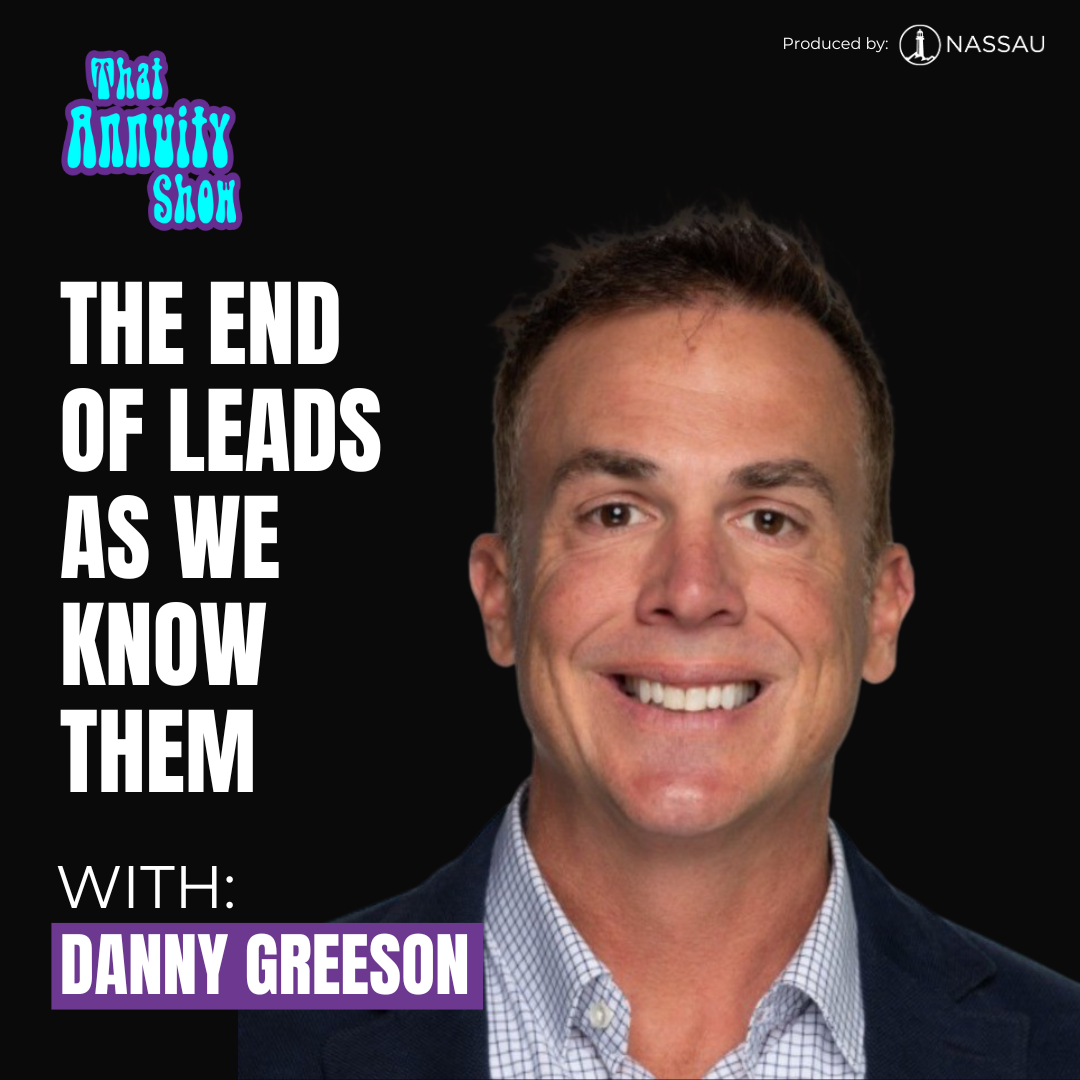

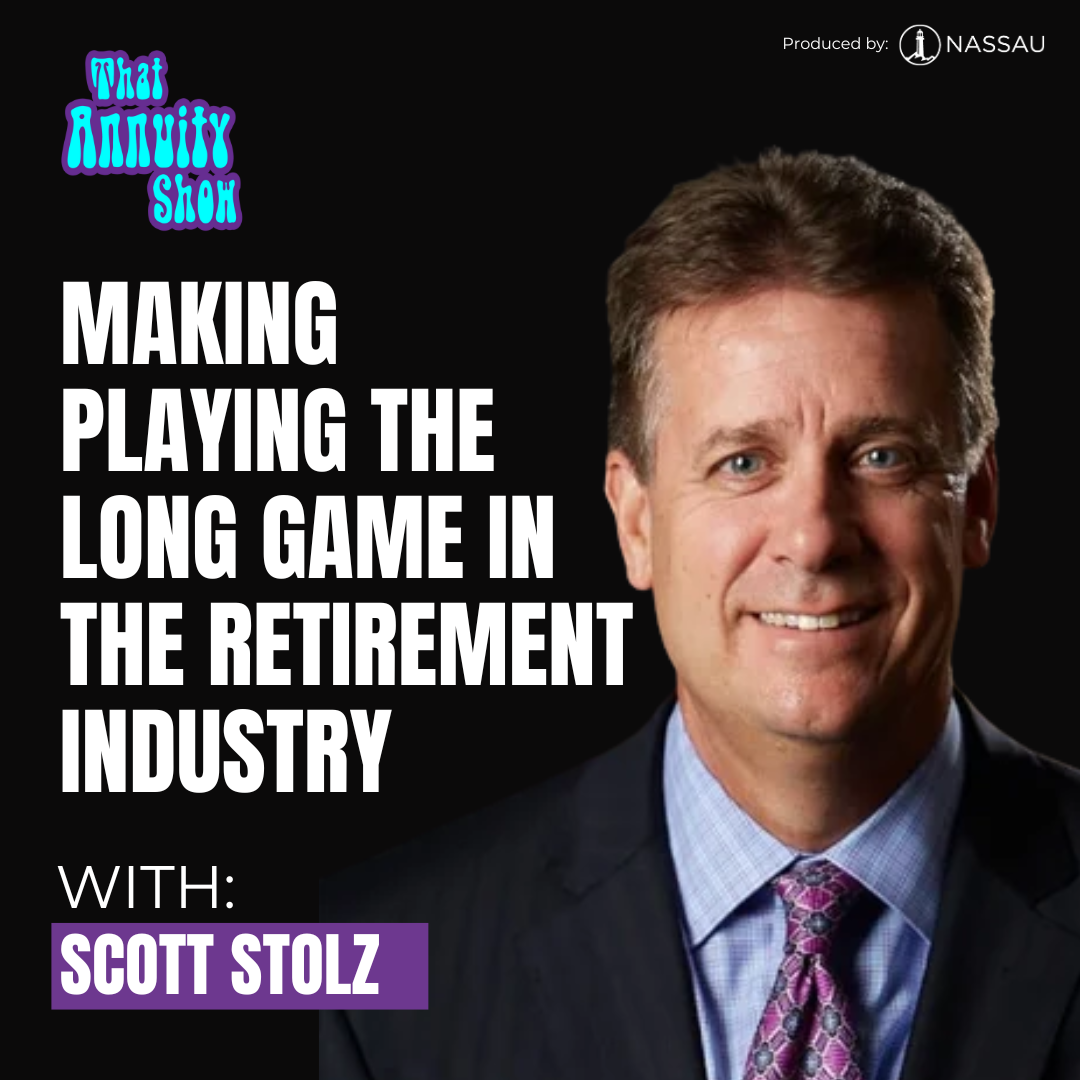
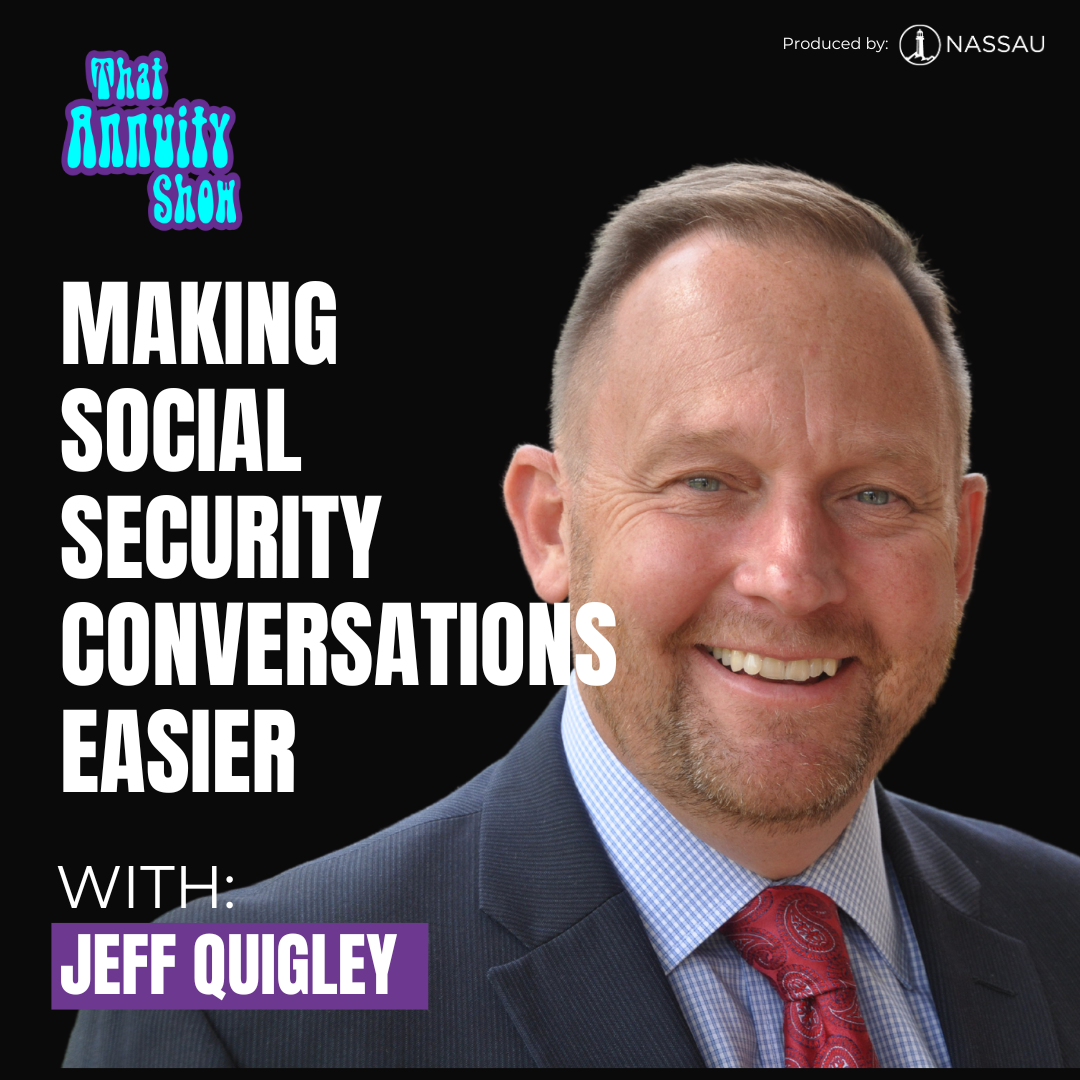
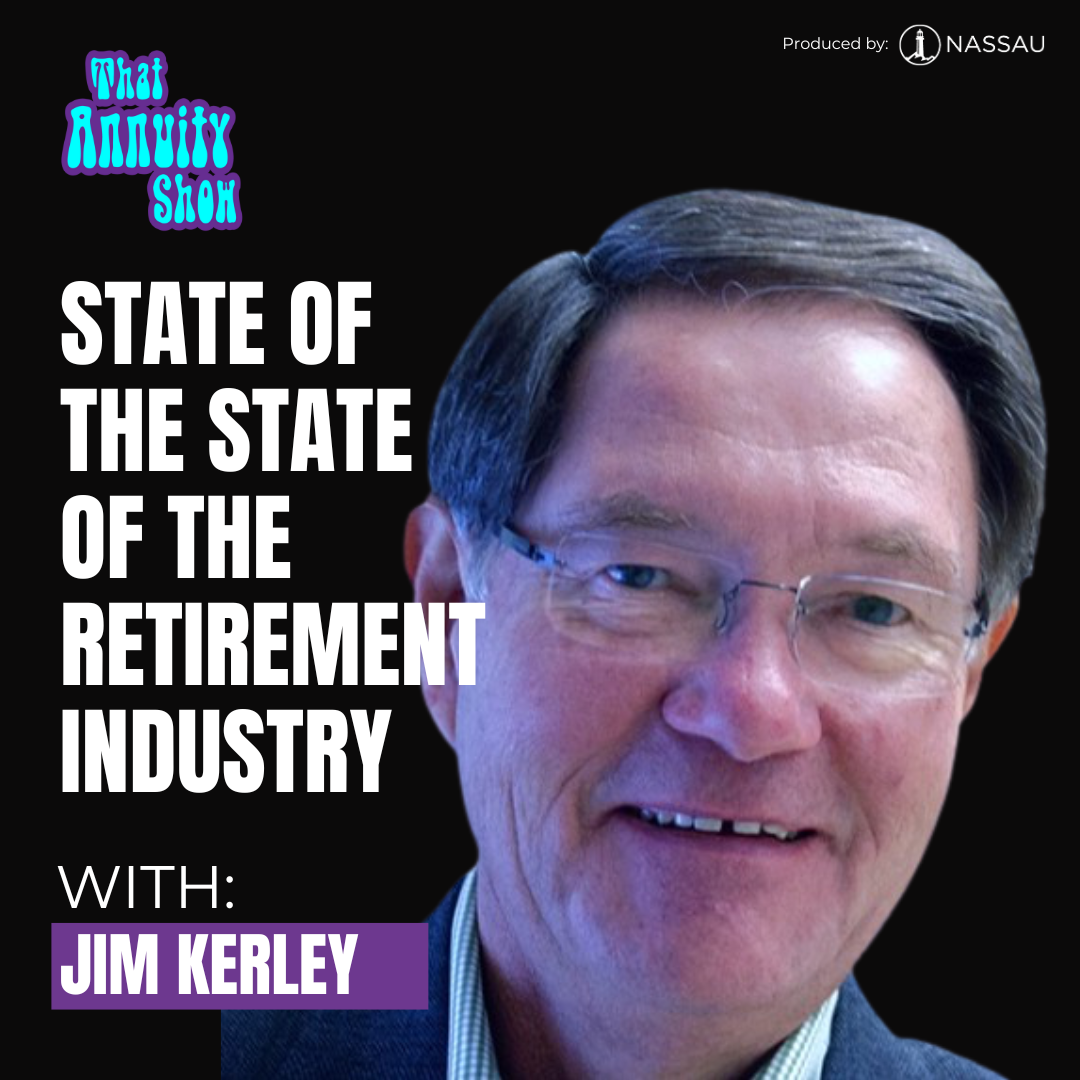
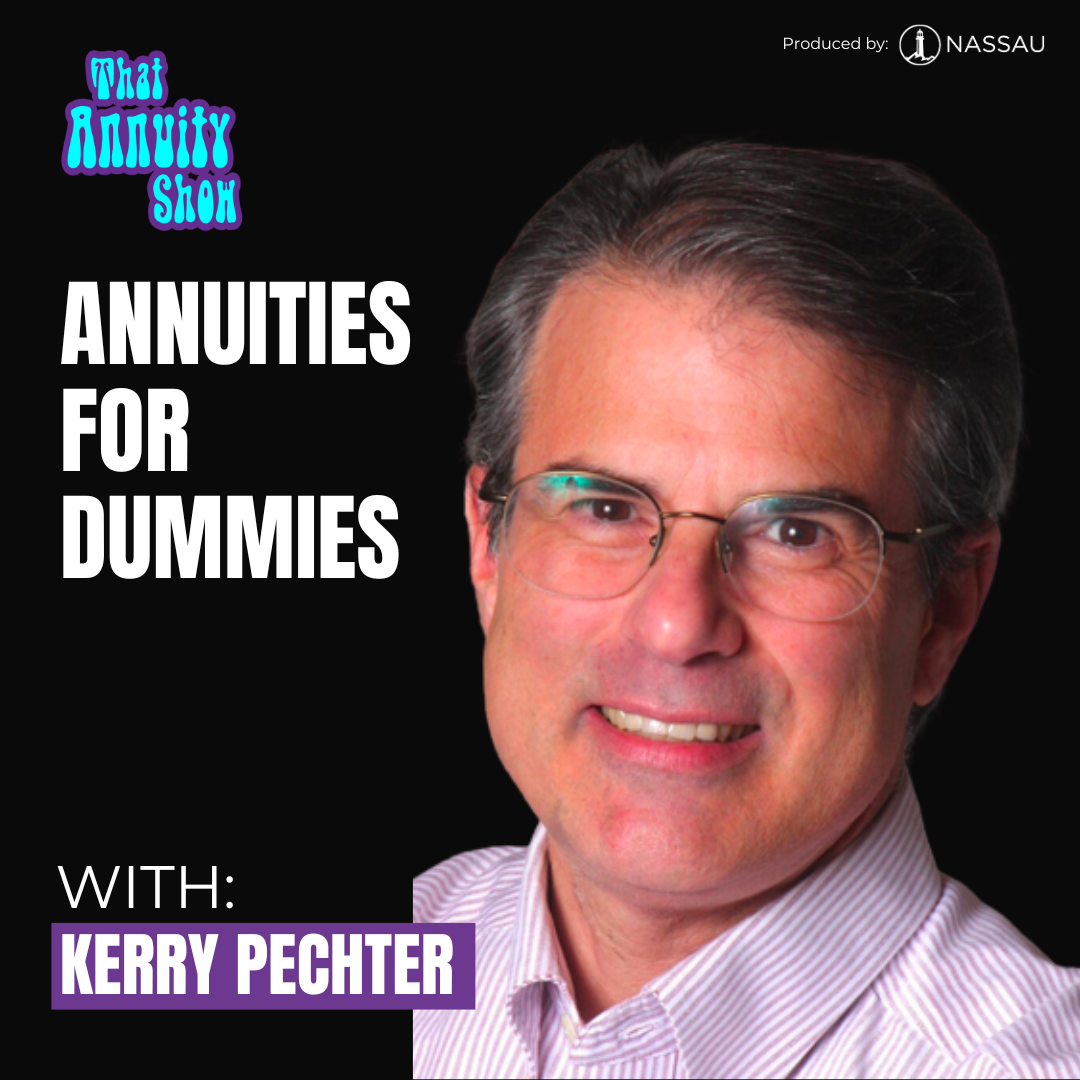
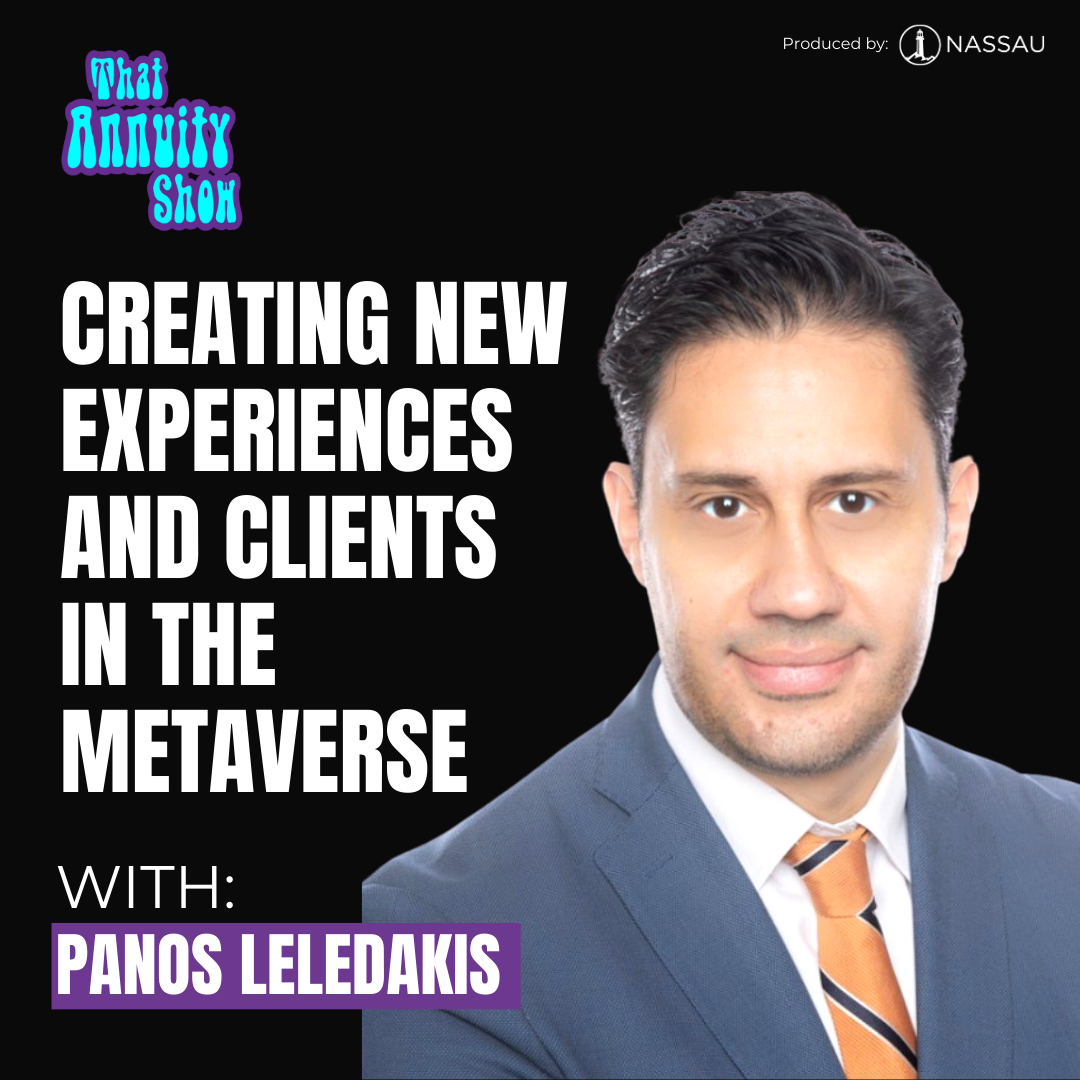
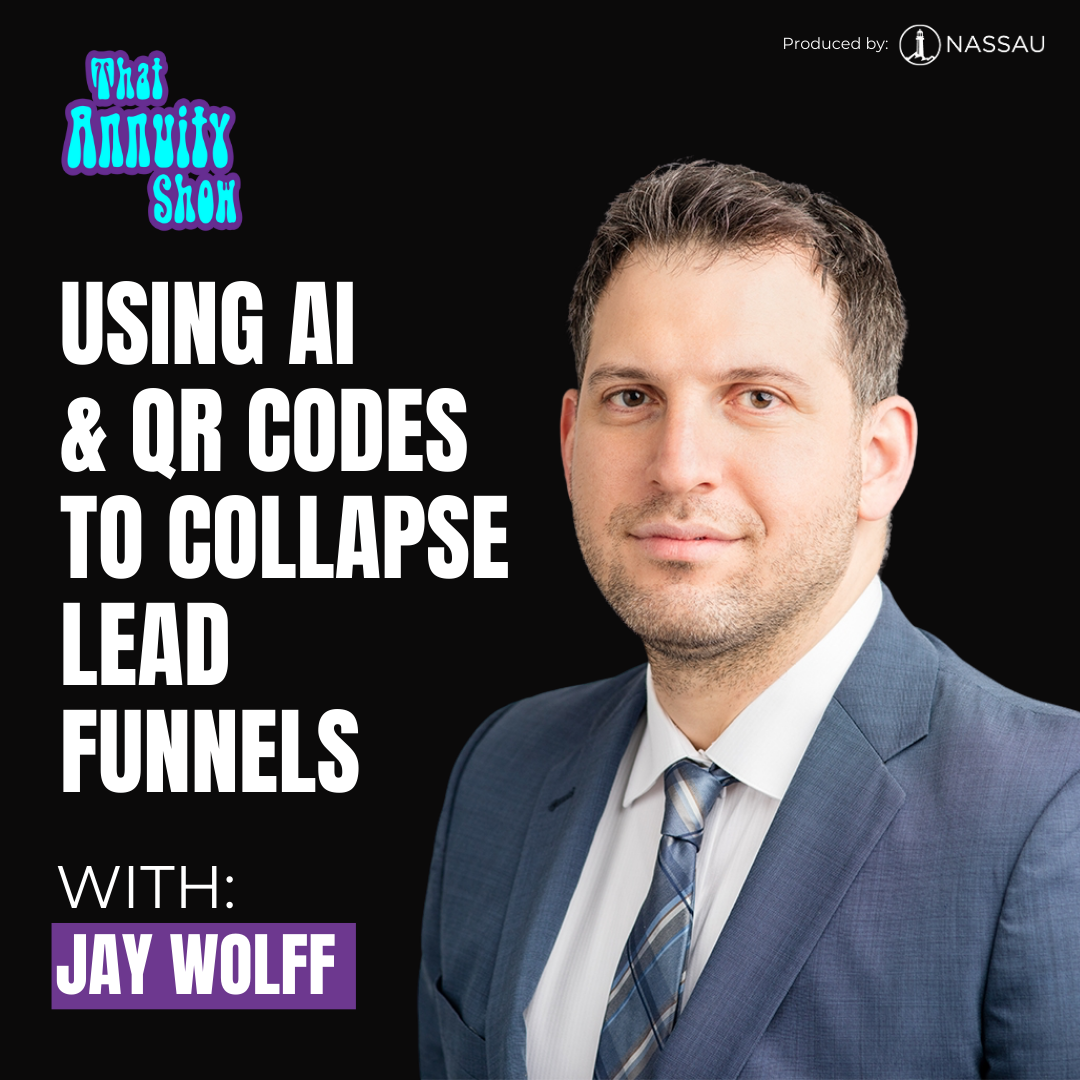

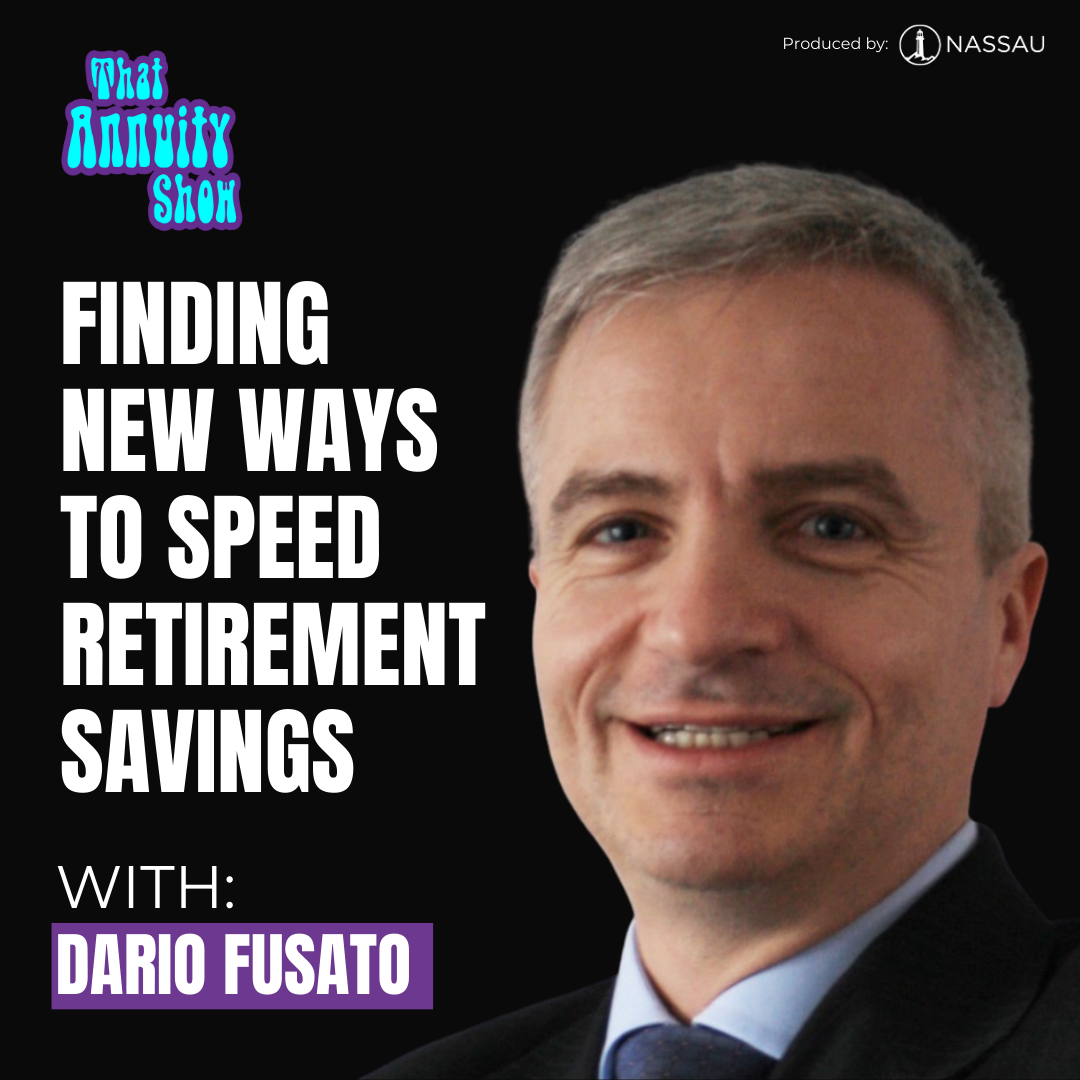
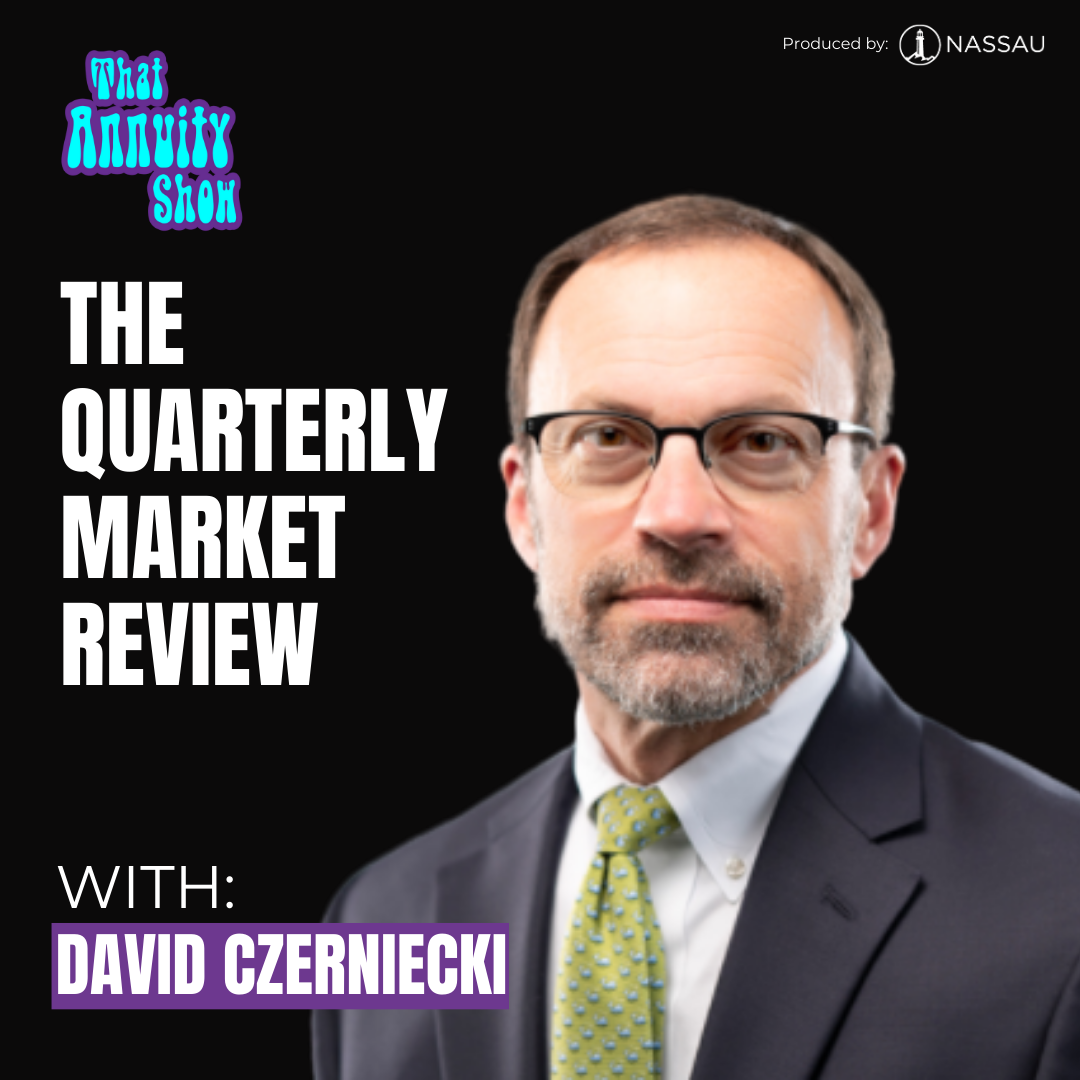
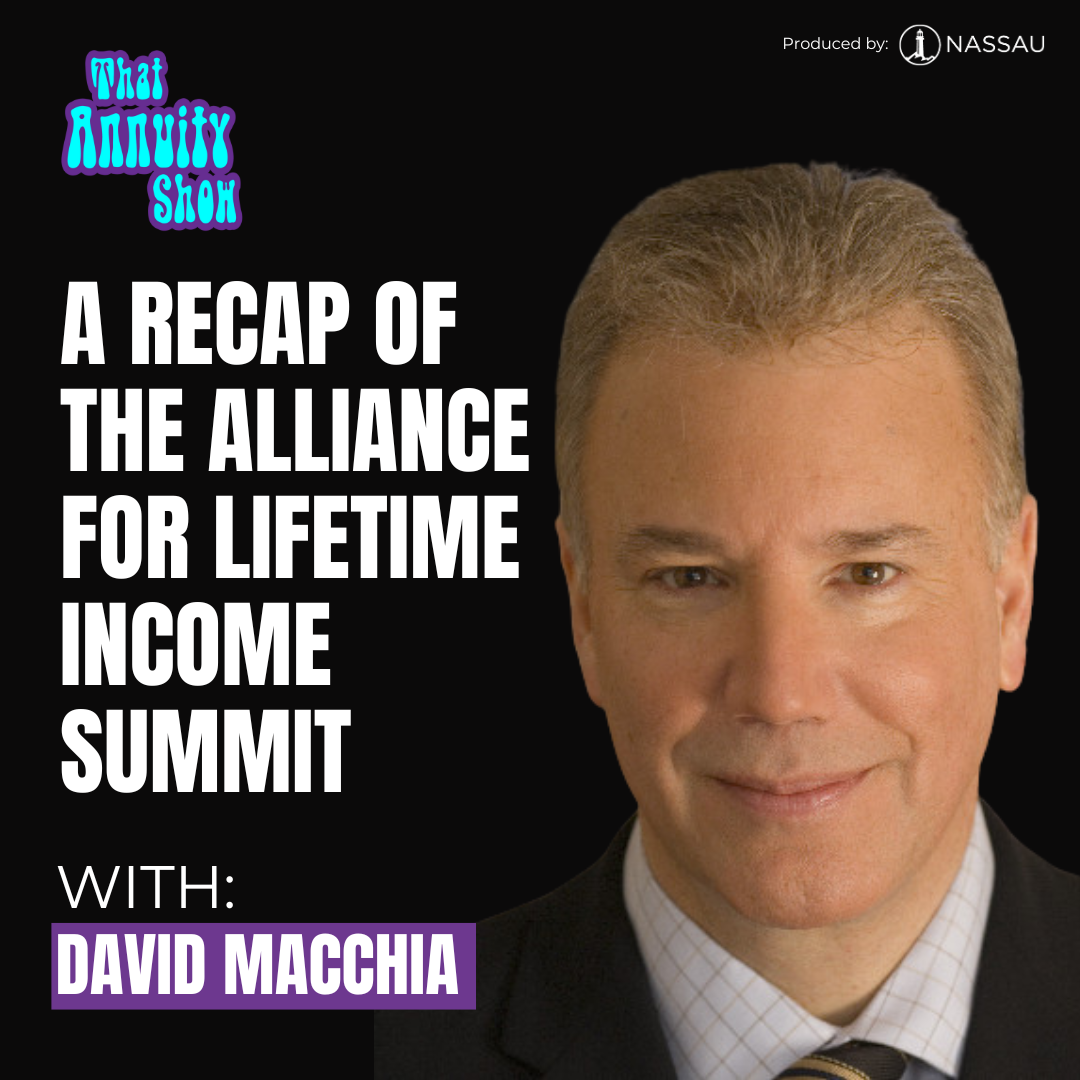



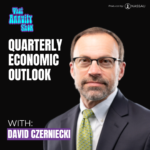
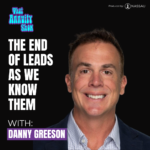
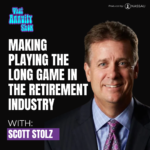
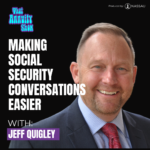
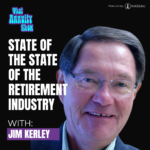

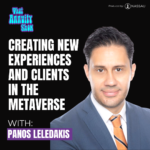
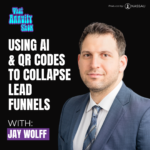
Recent Comments